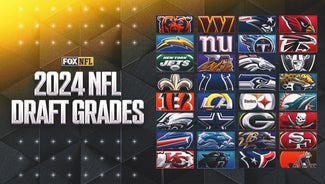





































































































































Past, present, future at quarterback collide on Championship Sunday

The playoffs aren’t just a chance to decide the NFL champion. They’re also an opportunity to assess where the league is at: its stars, its premier franchises, the jerseys it should be ordering more of. And this weekend, in the conference championship, the league has an even nicer situation on its hands: the past and future of the NFL are coming together in its present.
First, the future. The NFC playoff bracket has been a story of youth this year, with Nick Foles (24), Cam Newton (24), Russell Wilson (25), and Colin Kaepernick (26) all quarterbacking postseason squads. Aaron Rodgers (30) and Drew Brees (34) both are out. And though Foles and Newton also fell, that leaves Wilson and Kaepernick, two of the league’s best young QBs, jockeying for a position in the Super Bowl.
Last season, Wilson, along with Andrew Luck, and, to a lesser extent, Ryan Tannehill, more or less rewrote the belief — beginning to crumble, but still prevalent — that rookie quarterbacks aren’t ready to start. Kaepernick was plays away from a Super Bowl ring. And both quarterbacks have helped ease the often constricting idea of what a professional quarterback looks like: Wilson’s success despite his diminutive stature helping boost Johnny Manziel’s draft stock, and Kaepernick’s running ability reminding offensive coordinators that professional defenses aren’t always fast enough to stop a scrambling QB.
Now, the two lead arguably the coolest franchises in the NFL, teams with youth and vigor and maniac head coaches and rabid fan bases. Their matchup in the conference championship has a surprisingly similar air to that of Manning vs. Brady, which we’ll get to in a second, in that it’s a title fight, a battle with history weighing on it. Unlike the history that impacts Manning and Brady, though, the excitement of Wilson vs. Kaepernick is in the sense of history yet to be written, the potential for greatness that exists.
Meanwhile, in the AFC, we have the past. When Peyton Manning and Tom Brady retire, they will both be shoo-in Hall of Famers. They have four Super Bowl rings and, including this year, another four Super Bowl appearances. Including Manning’s more or less assured MVP award this year, they have seven of those. Brady has the edge in rings; Manning has the edge in individual hardware, records, and achievements.
These are the two best quarterbacks since the turn of the millennium, and they’re also symbolic of one of the biggest rifts in how you look at success in football. Brady is the paragon of team success, a guy who won three Super Bowls in four years, led his team to another two, and has made the playoffs in all but two of the 12 seasons he’s appeared in a substantial role as the starting quarterback. (In those two seasons the Pats didn’t make the playoffs? 9-7 and 11-5. New England has never failed to have a winning record with Brady at the helm.)
Manning, on the other hand, has the reputation for choking in the playoffs, on the big stage. But for those who argue that this is a team sport, and that “choking” has just as much to deal with the other players on the field, it’s easy to suggest that Manning is the greatest quarterback of all time.
He trails only Brett Favre for most touchdowns by a single quarterback, and if he played another season, he’d catch him easily, with far fewer interceptions to show for his efforts. His career completion percentage trails only Chad Pennington, Brees, and Rodgers. He has the most MVP awards of any player in league history even without this year’s. The list goes on.
Manning and Brady represent different ways of viewing the game of football: They represent the difference between player and coach, player and team, individualism and collectivism, the stresses placed on likability and public exposure and performance in crucial situations and a dozen other highly discussed elements of the game.
Regardless, their tenure as the league’s dominant forces is coming to a close. In football terms, they aren’t just old men — they’re defying common conceptions of longevity. But even these two guys can’t play forever.
Fortunately, all we have to do is look at the other game on Sunday to be reminded that, when Brady and Manning retire, we’ll no longer have them, but we’ll have other quarterbacks plenty worth watching.
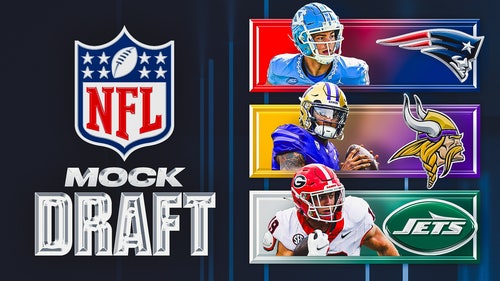
2024 NFL mock draft: Michael Penix Jr. rises, Brock Bowers cracks top 10
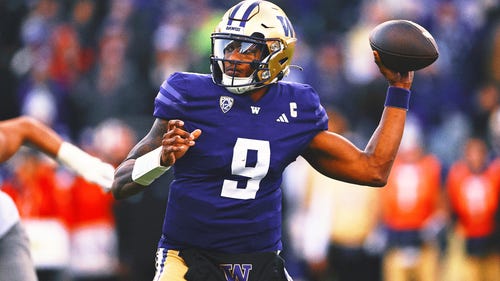
Atlanta Falcons select Michael Penix with No. 8 overall pick in 2024 Draft

2024 NFL Draft outfits: Marvin Harrison Jr.'s necklace, Caleb Williams' nails go viral
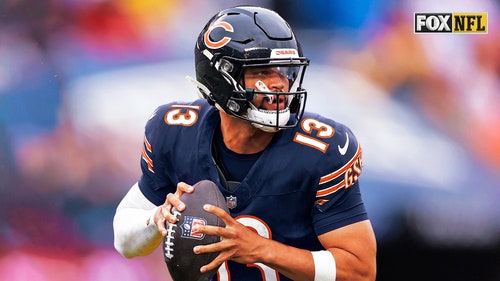
Chicago Bears select USC QB Caleb Williams with No. 1 pick in 2024 NFL Draft
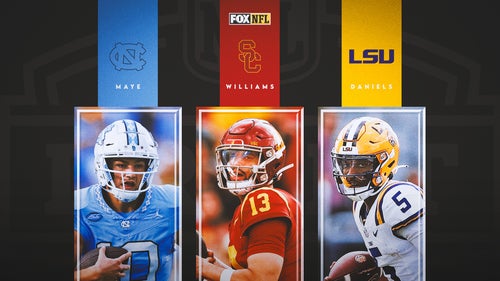
2024 NFL Draft QB rankings: Caleb Williams leads top 10 prospects

2024 NFL Draft Date, Time: Schedule, how to watch, TV channel

J.J. McCarthy among those who didn't go to Detroit for 2024 NFL Draft

2024 NFL Draft order: Updated after Round 1

'Bear Bets': The Group Chat's favorite 2024 NFL Draft bets


2024 NFL mock draft: Michael Penix Jr. rises, Brock Bowers cracks top 10

Atlanta Falcons select Michael Penix with No. 8 overall pick in 2024 Draft

2024 NFL Draft outfits: Marvin Harrison Jr.'s necklace, Caleb Williams' nails go viral

Chicago Bears select USC QB Caleb Williams with No. 1 pick in 2024 NFL Draft

2024 NFL Draft QB rankings: Caleb Williams leads top 10 prospects

2024 NFL Draft Date, Time: Schedule, how to watch, TV channel

J.J. McCarthy among those who didn't go to Detroit for 2024 NFL Draft

2024 NFL Draft order: Updated after Round 1

'Bear Bets': The Group Chat's favorite 2024 NFL Draft bets
